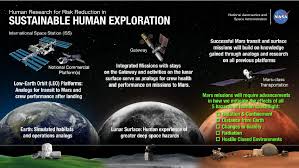The Fascinating World of Science and Space Research
Science and space research have always captivated the human imagination, pushing the boundaries of what we know about the universe. From exploring distant galaxies to studying the smallest particles, scientific research continues to unveil the mysteries of the cosmos.
Space research, in particular, has played a crucial role in expanding our understanding of the universe. Through telescopes, satellites, and spacecraft, scientists have been able to observe distant planets, stars, and galaxies, providing valuable insights into the origins and evolution of our universe.
Advancements in technology have revolutionised space exploration, allowing us to send probes to other planets, land rovers on Mars, and even capture images of black holes. These achievements not only deepen our knowledge of space but also inspire future generations to pursue careers in science and engineering.
Moreover, space research has practical applications that benefit society as a whole. From weather forecasting to communication satellites, the innovations born out of space exploration have improved our daily lives and helped us address global challenges.
As we continue to push the boundaries of scientific discovery, it is essential to support and invest in research that explores the vast expanse of space. By doing so, we can unlock new technologies, unravel cosmic mysteries, and pave the way for a brighter future for humanity.
“The Nomenclature of Discovery: Defining Space Research”
“Unveiling the Universe: An Introduction to Science and Space”
4. “Ast
- What is an example of space research?
- What is space research called?
- What is science and space?
- What is the science of space research?
What is an example of space research?
An example of space research is the study of exoplanets, which are planets located outside our solar system. Scientists use telescopes and spacecraft to observe these distant worlds, analyse their atmospheres, and search for signs of habitability or potential life. By studying exoplanets, researchers aim to broaden our understanding of planetary systems beyond our own and explore the possibility of finding Earth-like planets that could support life in other parts of the universe. This field of space research not only deepens our knowledge of the cosmos but also fuels our curiosity about the diversity and potential for life in the vastness of space.
What is space research called?
Space research is commonly referred to as “space science” or “astronautics.” It encompasses the study of outer space, celestial bodies, and the exploration of the universe beyond Earth’s atmosphere. Space research involves a wide range of disciplines, including astronomy, astrophysics, planetary science, and aerospace engineering, all aimed at expanding our knowledge of the cosmos and advancing our understanding of the universe.
What is science and space?
Science encompasses the systematic study of the natural world through observation, experimentation, and analysis to understand how things work. It involves various disciplines such as physics, chemistry, biology, and astronomy. Space research focuses on exploring the vast expanse beyond Earth, including planets, stars, galaxies, and other celestial bodies. By utilising advanced technologies and conducting experiments in space, scientists aim to unravel the mysteries of the universe and expand our knowledge of the cosmos. The study of science and space not only deepens our understanding of the world around us but also inspires curiosity and drives innovation in technology and exploration.
What is the science of space research?
The science of space research encompasses a multidisciplinary approach to studying the vast expanse beyond Earth’s atmosphere. It involves the exploration of celestial bodies, phenomena, and cosmic processes through observation, experimentation, and analysis. Scientists in this field seek to understand the fundamental principles governing the universe, including the origins of galaxies, stars, planets, and other celestial objects. Space research also involves investigating the effects of space on various aspects of life on Earth and developing technologies for space exploration and discovery. By delving into the complexities of space through rigorous scientific inquiry, researchers aim to expand our knowledge of the cosmos and unlock new frontiers in understanding the mysteries of the universe.

No Responses